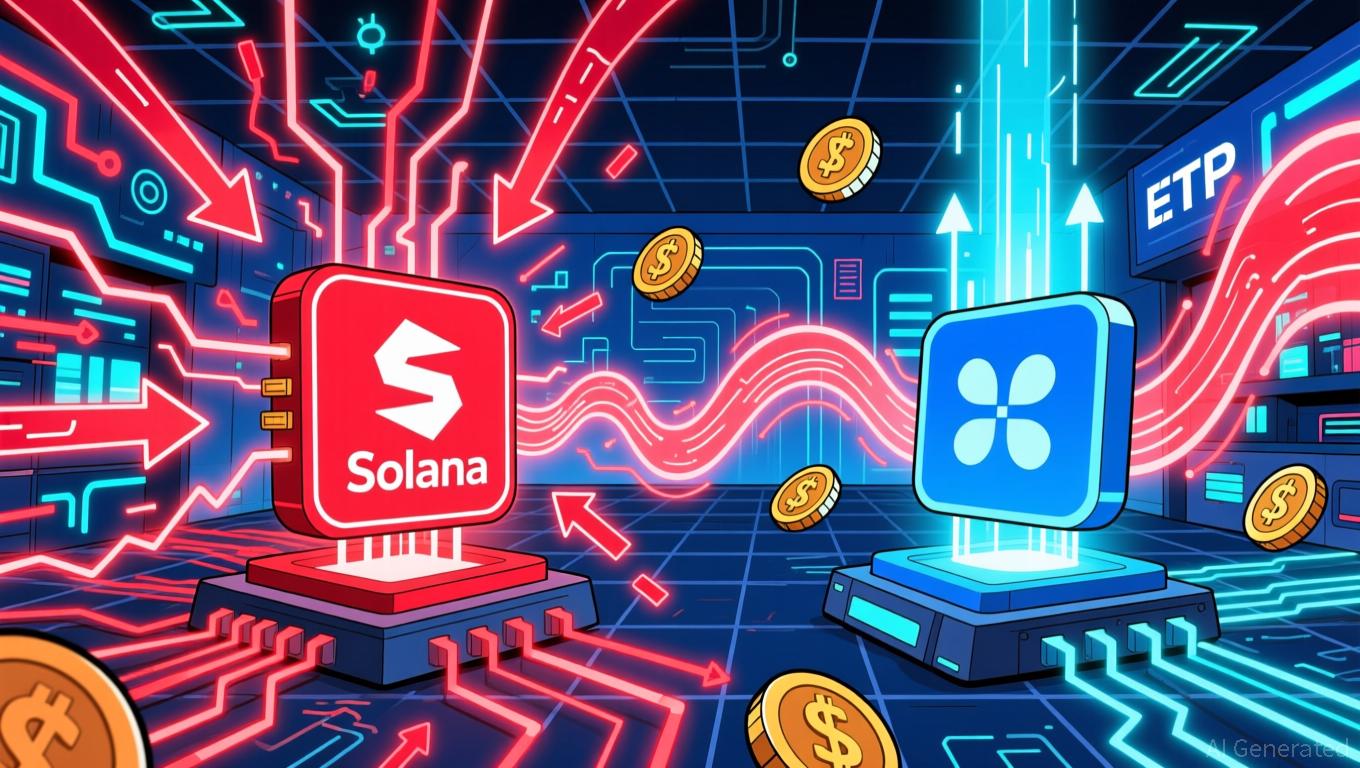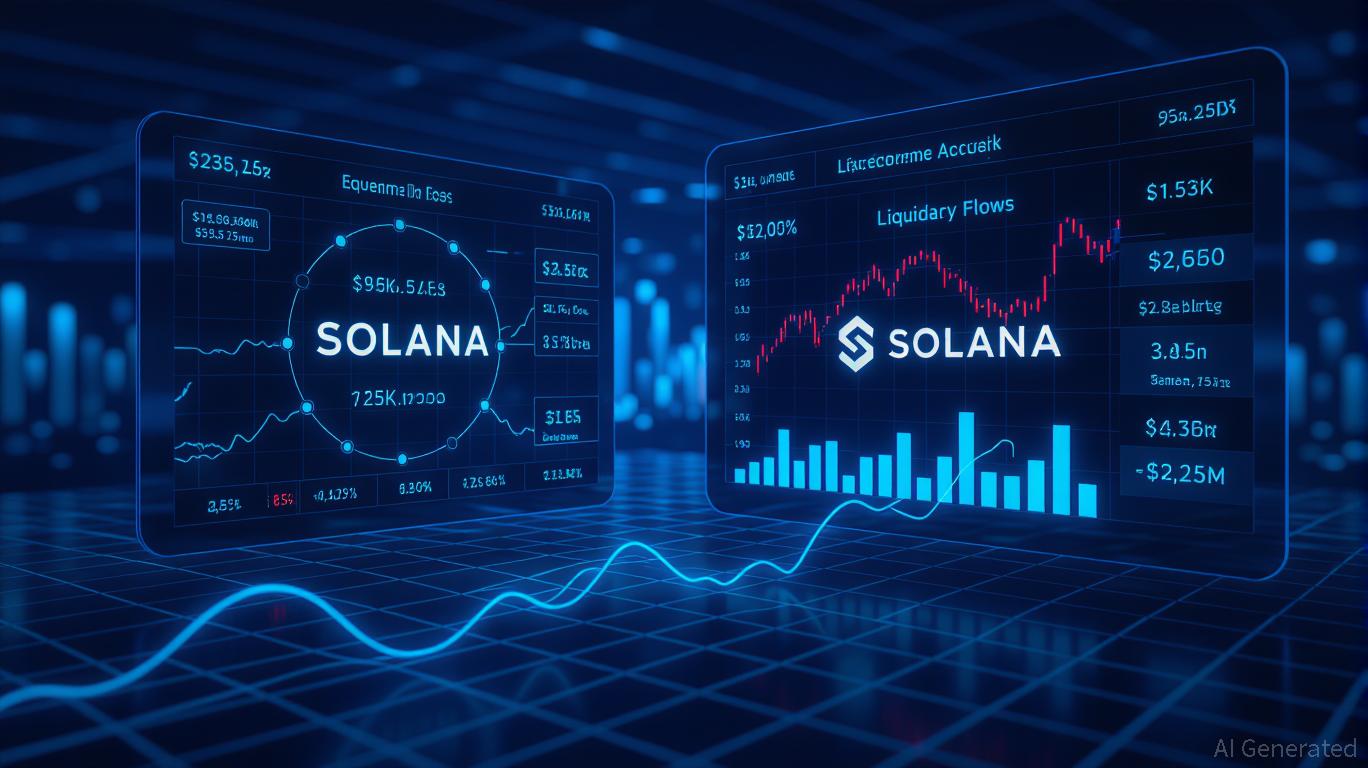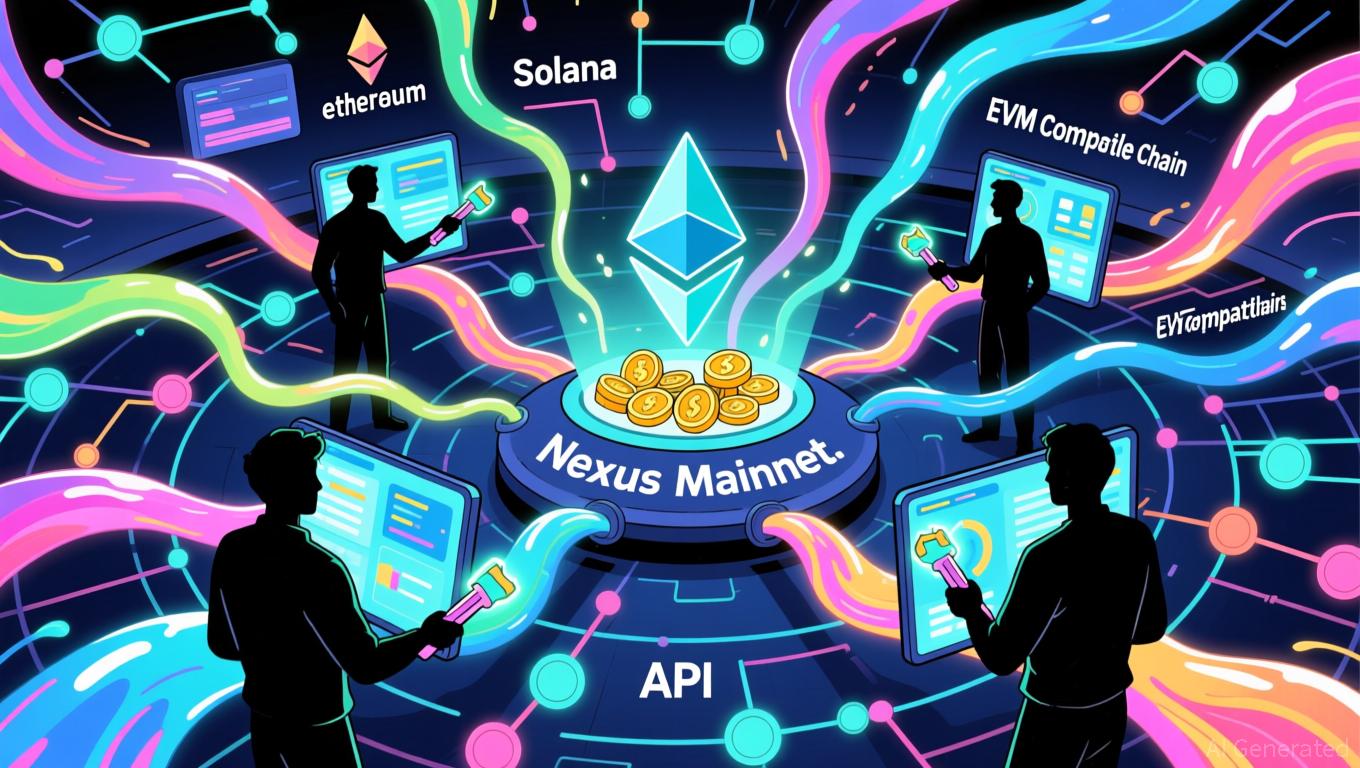The ‘Boring Robot’ Movement: Tokenized Agriculture Delivers Consistent Urban Returns
- peaq, DualMint, and KanayaAI launched the world’s first tokenized robo-farm in Hong Kong using AI and robotics to automate 80% of farming tasks. - The semi-autonomous vertical farm generates 20% annual yields via NFTs, producing pesticide-free greens with 90% less water and 10x less land than traditional methods. - Tokenization ties returns to grocery demand, offering stable yields independent of crypto volatility while aligning with Hong Kong’s urban sustainability goals. - Partners position the project

peaq, a blockchain network dedicated to the Machine Economy, has revealed the debut of the world’s inaugural tokenized robotic farm in China Hong Kong, created in partnership with DualMint and KanayaAI. This semi-automated vertical farm utilizes artificial intelligence and robotics to handle around 80% of the labor typically done by hand, offering token holders an anticipated annual return of 20% title1 [ 1 ]. Announced during Korea Blockchain Week 2025, the farm will supply local consumers with fresh produce like lettuce, kale, and spinach through a subscription-based service title2 [ 2 ]. By issuing non-fungible tokens (NFTs) on the peaq blockchain, the farm’s revenue streams are tokenized, aiming to make ownership of automated infrastructure more accessible title3 [ 3 ].
The farm’s architecture prioritizes both sustainability and operational efficiency. It is expected to require only a tenth of the land, use 90% less water, and operate without pesticides compared to standard agricultural methods title4 [ 4 ]. With 12 harvests per year—three times the usual 3–4 cycles—its AI-driven hydroponics and environmental controls are projected to cut labor expenses by half and boost yields by 20% over similarly sized traditional farms title5 [ 5 ]. These achievements support China Hong Kong’s environmental objectives, helping to secure urban food supplies while reducing ecological impact title6 [ 6 ].
This tokenization approach links investor profits to actual grocery demand, a market less affected by cryptocurrency price swings. DualMint, overseeing the tokenization, emphasized that farm-generated income will directly support NFT holder returns title7 [ 7 ]. Token access registration is now open, with early applicants granted a 24-hour head start for the public sale title8 [ 8 ]. The initiative is categorized as a “Boring Robot” asset, referring to yield-producing machines designed for continuous, stable operation and returns title9 [ 9 ].
Leaders from the three organizations highlighted the project’s wider significance. Leonard Dorlöchter, peaq’s co-founder, called it a “milestone” for the era of AI and automation, allowing communities to share in the benefits of robotics rather than worry about job loss. Dr. Princeton Wong of KanayaAI pointed out that AI-powered, tokenized vertical farming presents a scalable answer for crowded cities. Bill Lee from DualMint stressed the model’s robustness, noting that grocery needs create a “reliable, sustainable base for expansion” that is not tied to crypto market trends.
This launch represents a significant move in the Real-World Asset (RWA) tokenization movement, which is forecasted to expand from $250 billion to $3.5 trillion by 2030. By linking tokens to real, income-producing assets, the project supports the integration of blockchain technology with the physical economy. Peaq’s blockchain enables machine-to-machine payments and governance, paving the way for the Machine Economy’s growth. DualMint intends to apply this framework to additional automated assets, such as unmanned retail, broadening the scope of tokenized investments.
Disclaimer: The content of this article solely reflects the author's opinion and does not represent the platform in any capacity. This article is not intended to serve as a reference for making investment decisions.
You may also like
Ethereum News Update: Amundi’s Integrated Approach Connects Blockchain with Conventional Financial Regulations
- Amundi, Europe's largest asset manager, launched its first Ethereum-based tokenized money-market fund, enabling 24/7 settlements and transparent record-keeping via blockchain. - The hybrid model, developed with CACEIS, combines traditional fund operations with blockchain-based ownership, preserving regulatory compliance while expanding investor access. - Ethereum's dominance in stablecoin and RWA transfers ($105.94B in 30 days) underscores its role in accelerating tokenization, with Amundi positioning it

XRP News Today: XRP ETFs Drive Price Increases, While Solana ETFs Ease Selling Pressure
- XRP ETFs raised $587M in inflows since late November, outpacing Solana's $568M as investors favor altcoins with regulatory clarity and utility. - Bitwise XRP ETF's $107M debut and zero-fee strategy drove momentum, while Solana ETFs faced $156M weekly outflows due to network reliability concerns. - XRP's inflows acted as a "battering ram" pushing prices above $2.27, contrasting Solana's ETFs which merely dampened sell pressure without reversing its decline. - Analysts predict XRP could reach $3 by Decembe

The Federal Reserve's Change in Policy and Its Impact on Alternative Cryptocurrencies Such as Solana
- Fed's 2025 policy shifts, including rate cuts and stablecoin regulations, are reshaping altcoin markets by altering liquidity and risk appetite. - Solana's Alpenglow upgrade (150ms finality, 1M TPS) addresses scalability issues, aligning with Fed's AI-driven infrastructure focus despite network reliability concerns. - Institutional inflows into Solana ETFs ($100M AUM) contrast with retail caution (78% HODLers in red), highlighting divergent risk perceptions amid 30% price corrections. - Divergent ETF flo

Avail's Intent-Driven Nexus Addresses the Issue of Fragmented Liquidity Across Chains
- Avail launches Nexus Mainnet, a cross-chain solution unifying liquidity across Ethereum , Solana , and EVM networks. - The intent-solver model enables seamless asset transfers without technical complexities, streamlining user experiences. - Developers gain modular tools for multichain integration, reducing costs as cross-chain liquidity demand grows. - Nexus abstracts execution layers, offering unified balances and execution while addressing fragmentation challenges. - With $50B+ in cross-chain activity
